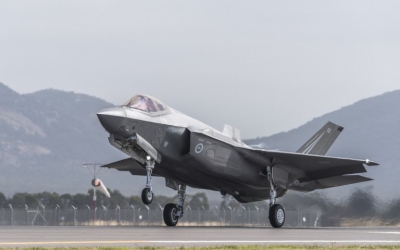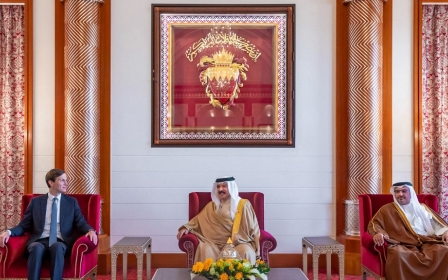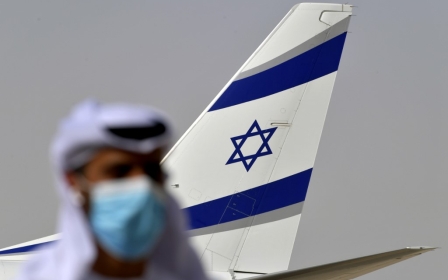Netanyahu secretly agreed to F-35 sale to UAE before opposing it: Report

Before publicly opposing the sale of advanced weapons to the United Arab Emirates by the US last month, Israeli Prime Minister Benjamin Netanyahu had secretly agreed to the arms deal amid a normalisation push with Abu Dhabi, the New York Times reported.
In August, the White House announced a "peace deal" between Israel and the UAE, with the countries agreeing to establish official diplomatic relations and cooperate on economic and security initiatives.
After initial reports that Israel had agreed to the sale of advanced weapon systems to the UAE, including F-35 fighter jets, Netanyahu was quick to stress that his government will "always" work with Washington to preserve Israeli military superiority in the region.
Protecting Israel's "qualitative military edge" in the Middle East has been a decades-long American policy that is enshrined in US law.
UAE officials had hoped that after normalising relations with Israel, their new allies would not be concerned about Abu Dhabi's military capabilities. Top Emirati diplomat Anwar Gargash told the Atlantic Council last month that acquiring the F-35 jets was a "legitimate" move by Abu Dhabi.
New MEE newsletter: Jerusalem Dispatch
Sign up to get the latest insights and analysis on Israel-Palestine, alongside Turkey Unpacked and other MEE newsletters
"This is something on the table. We have legitimate requests that are there. We ought to get them... Now the whole idea of, you know, the state of belligerency or war with Israel will no longer exist, so I think it should be... easier," Gargash said.
Israel denies report
Giving a green light to the arms deal would be politically costly for Netanyahu, who is facing domestic issues, including protests over his government's handling of the coronavirus pandemic.
Benny Gantz, Israel's defence minister and Netanyahu's chief political rival, had slammed the idea of allowing the UAE to buy F-35 jets. "It is forbidden to take security risks," he said last month.
The Lockheed Martin-produced F-35 is one of the most powerful warplanes in the world, with the ability to evade radars, conduct strikes on targets on the ground and engage in air combat.
According to the New York Times report, the held-up UAE arms deal with the US also includes combat drones and EA-18G Growler aircraft, which has the ability to disable enemy radar and radio systems.
Israeli officials involved in the negotiations with Abu Dhabi told Haaretz in response to the New York Times' story that the government has not changed its position on protecting Israel's military superiority.
Ron Dermer, Israel's ambassador to Washington, also denied the report, telling the New York Times it was "not true" that Netanyahu had changed his position.
Late in August, Axios reported that UAE officials had cancelled a ceremonial meeting with their Israel counterparts over Netanyahu's opposition to the arms deal.
The Times report also revealed that some Pentagon and State Department officials were unhappy that UAE officials had received a classified briefing on the F-35 earlier this year.
US Secretary of State Mike Pompeo dismissed any internal rift within the administration.
"When a paragraph starts with 'some officials' in an organisation of the scale and size of the Department of Defense or the State Department, I am confident that there are some officials that believe just about everything," he told the Hugh Hewitt Show on Friday.
Middle East Eye delivers independent and unrivalled coverage and analysis of the Middle East, North Africa and beyond. To learn more about republishing this content and the associated fees, please fill out this form. More about MEE can be found here.





